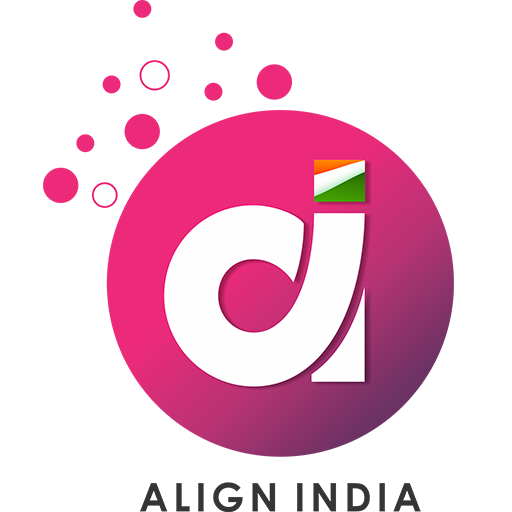by Dr. J.S. Yadav
Freedom of press/media and periodic elections are integral to democracy. Dissemination of results of opinion polls is as legitimate activity of media as news and views. However, in the age of paid news and revelation of a sting operation, opinion polls have become suspect and many voices are being raised to ban opinion polls.
In 2004, most of the political parties complained to Election Commission about what they called misleading poll surveys. Political leaders have been conveniently changing stand on this issue in light of their parties’ performance in such poll surveys.
In the circumstances, it is necessary to examine two issues:
1) How scientific are the poll surveys and
2) How the poll surveys affect the voters’ choice?
If the opinion polls were truly scientific, the results of surveys by different agencies should be similar if not identical. Rather, these differ widely as opinion polls suffer from the usual infirmities inherent in social science studies. Often the questions are raised about sample size for not being representative of large number of voters in any constituency, state or the country. It is not possible to cover every voter in opinion poll survey. Sampling is an accepted methodology of social science research and there are scientific methods of sampling. The larger the sample size, greater the probability of it being representative, but there are always constrains of time and resources.
The more homogeneous population is, smaller the sample size can be, but the more heterogeneous the population is, the larger is the required sample to be ‘representative’. India is a highly diverse society. The primordial identities of religion, caste, region, language is so strong, that they influence voting behavior while political party loyalty being weak and shifting, the drawing of a representative sample for opinion poll is a herculean task.
Besides sampling errors, the respondents selected for opinion poll invariably are reluctant or wary of giving his/her true opinion. This may be due to well ingrained view that his/her vote is a secret and should not be shared with others, especially outsiders; the field enumerators who approach on behalf of poll agencies. They are often casual about surveys and even give misleading response deliberately.
The other major area of error could also flow from the way the questions in the questionnaire are either structurally loaded or put in a loaded manner by the field investigators who often are not well trained in research methodology. Further, dishonest and unethical practices in field data collection such as filling up interview schedules themselves rather than actually contacting the sampled respondents to cut corners to meet the daily target of completing the day’s quota and in the absence of proper supervision and cross checks which is necessary for quality data collection in the field. So the computer data analysis will merely mean ‘garbage in and garbage out’.
Coming to the effects of opinion polls on voters’ choice, it is reasonable to assume that the opinion polls do affect the election campaigns and have ‘bandwagon effect’ on voters’ choice and hence boosting the chances of victory of the party/candidate leading in an opinion poll. It is alleged that the political parties are willing to spend huge money to have favorable opinion outcomes and disseminate the result through mass media to have bandwagon effect in their favor.
But the reverse, “underdog effect” also takes place. The party lagging behind in an opinion poll responds by tightening its shoes and its supporters becoming more determined to fight back and have been seen to reverse the opinion poll predictions. Further, it is difficult to measure the quantum of effect and say conclusively that the change has been exclusively due to the opinion poll survey results. The people make choices based upon many communication inputs from media as well as other considerations of primordial ties like caste, creed and linkages.
The arguments that are being extended against opinion polls are that these are not very scientific and hence are not reflective of the public opinion and given the methodology followed, there is a huge scope for manipulations at various stages in the conduct of the survey. There is some substance in both these arguments. All the contending parties try their best and use every trick in their quiver to reach their target audience, manipulate their perceptions and win them over so that they vote for them.
As a matter of fact, all communications are manipulative. Not only editorials and comments but hard news has become a weapon to project images, laudatory or condemnatory, according to a predetermined strategy, as was commented by Indira Gandhi in 1983 the then Prime Minister while addressing the NAMEDIA conference in New Delhi- In good old days, “opinions were free but facts were sacred”. Today, the difference between the “editorials” and the “News” has become blurred. It is more so in case of electronic media. Anchors of many a TV channels aggressively push their views or their perceptions of the politics as news, rather presenting editorialized news. With commercialization of media, the dangers of using opinion polls also to manipulate public opinion are really huge.
But, any student of media studies knows that there are limits to manipulations inherent in media functioning itself. Credibility of the source is the factor in its effects on the audiences. Once credibility is lost, it becomes not only non-effective but counterproductive doing great damage to the cause. I am sure the pollsters and media organizations are aware of this and tread with sufficient cautions.
More importantly, do not view the common people as sitting ducks hit by the opinion polls. The voters in India are very discerning. They vote on the basis of multiple considerations. The bandwagon effect of the opinion polls is limited by primordial considerations of caste, creed and religion etc. and their own experiences with the government performance and political players of different parties over the years preceding the elections.
It must however be remembered that in the days of commercialization of media, the opinion polls like horse races, are also big business opportunities to make quick money. Many important questions that can provide information on issues of daily concern to the common people are not asked and hence the opinion polls do not really increase your understanding of the socio-political scenario, to enable the voters to make more informed choices based upon their concerns. To conclude, the opinion polls in India is desired to be more scientific and ethical. This, however, does not mean that the opinion polls are not required or banned. Rather, a mechanism by professionals conducting opinion surveys should be in place to ensure highest possible standards in terms of being systematic, objective and comparative so as to come out with reliable and useful information about public opinion on different issues to help common voters to make informed choices.
(Dr. J. S. Yadav, well-known media teacher, mass communication researcher and political analyst is a former Director of IIMC, New Delhi., At present he is Chairman of Communication Research Foundation(CRF), a media research organization.)


